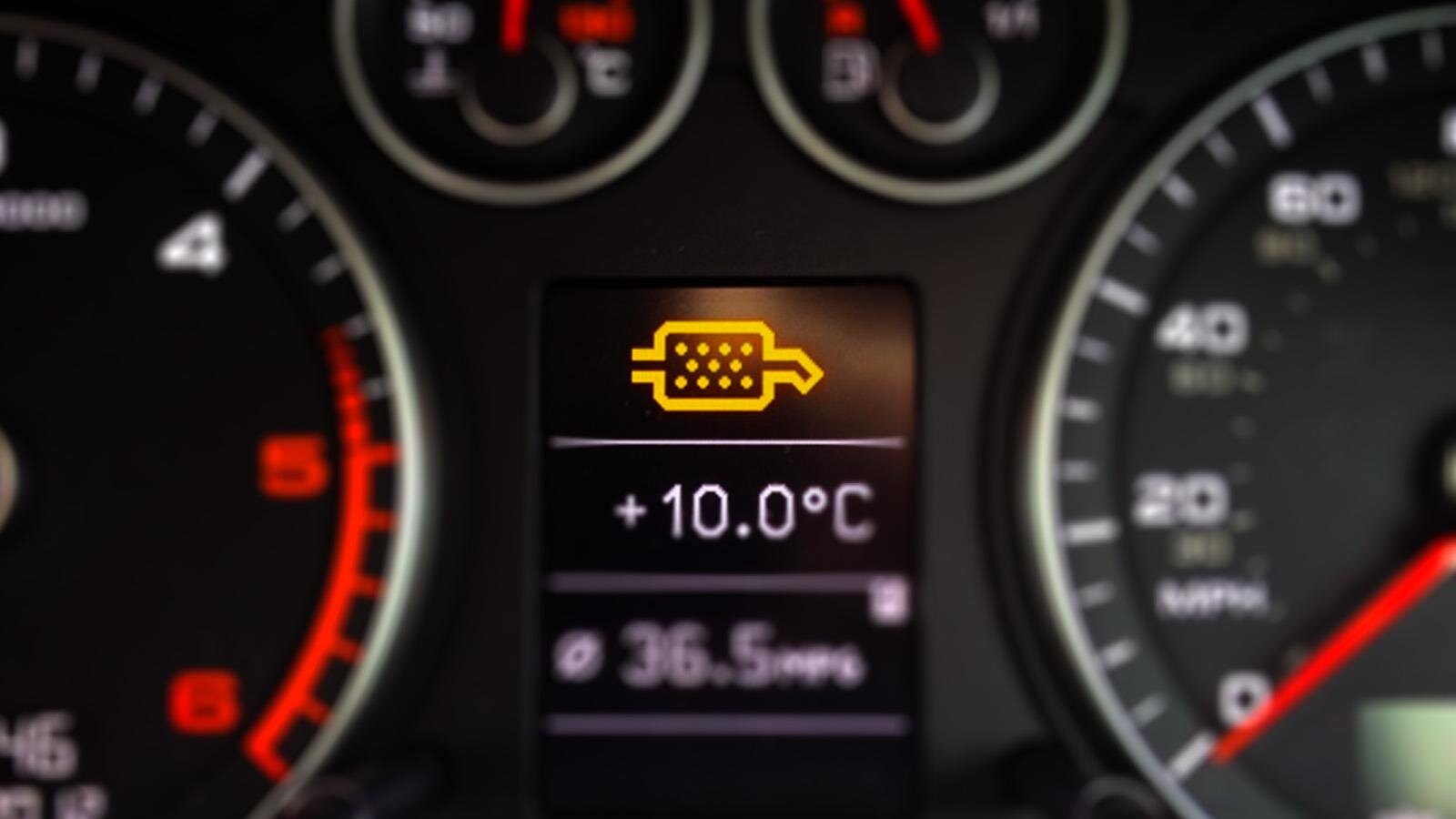
DPF
Diesel Particulate Filter Specialists in Basingstoke, Hants
All You Need To Know!
If you own a diesel vehicle, it is important to know how to maintain the DPF, and to find out more about the solutions we have available to you, if they become blocked.
We initially carry out comprehensive diagnostics to identify the cause of your car not being able to regenerate the DPF itself. We can then advise on the best option for resolving your DPF issue, if there are no other faults found within the vehicle.

DPF Cleaning Options
Forced Regeneration
In some circumstances, we have the ability to carry out a forced regeneration, which can clear the soot and allow the automatic regeneration process to take place again in the future.
Diagnostics
Forced Regeneration
Contact us for pricing.
On Car - DPF Cleaning
TerraClean's patented DPF Induction System Cleaner, enables us to clean your vehicle’s DPF without the need to dismantle the engine or exhaust, therefore saving you money on costly labour charges, or possible DPF replacement.
Diagnostics
TerraClean DPF Clean
From £190 +vat
Off Car - DPF Cleaning
We will remove the blocked DPF from your vehicle and soak it in our specialised water based cleaning solution, to assist with the breakdown of contaminants within the DPF, and to aid the cleaning process.
Diagnostics
Oxyhtech DPF Clean
From £200 +vat
(Plus removal costs, if DPF still on the vehicle)
We will be happy to discuss these options with you.
Frequently Asked Questions
-
A DPF is a device which sits within a vehicle’s exhaust system, and is designed to capture and store soot and diesel particles, in order to reduce emissions from diesel cars. in our towns and cities.
Because the DPF only has a finite capacity, they are intended to self clean through a process called regeneration. Regeneration can only occur under certain driving conditions, and the trapped soot will be ‘burned off’ leaving a small ash residue. Sensors within the vehicle’s ECU will determine when this regeneration process should occur.
-
As the DPF becomes blocked a warning light may display on the dashboard, and this should not be ignored. Driving style is a main factor to the DPF becoming blocked, ie short journeys at low speeds (city driving) and Manufacturer’s now recommend petrol cars for this type of driver. The car is unable to fully carry out the regeneration automatically during these short journeys, and it becomes blocked.
DPF’s should last approx 100,000 miles, however on poorly serviced and maintained vehicles they tend to fail sooner. It is also important that the correct types of oil are used within the vehicle, as some contain additives that actually block the filters.
-
Yes! Owners can face fines of up to £1000 for cars and £2500 for vans if caught. It can also invalidate your vehicle insurance policy, and your vehicle will fail an MOT test.
How do I maintain my vehicle’s DPF, to prevent a blockage?
The most effective way to maintain a DPF, is to ensure that it is able to regenerate itself, when it becomes full of soot and the warning light appears.
There are two types of regeneration processes your vehicle can carry out - PASSIVE and ACTIVE regeneration:
Passive Regeneration
Passive regeneration takes place when the car is running at high speed, on a long motorway journey for example. This allows the exhaust temperature to increase to a higher level, and cleanly burn off the excess soot in the DPF.
For this reason it is recommended that drivers should regularly give their diesel vehicles a 30 - 50 minute run, at a continual higher speed, to allow this regeneration to occur and help clear the filter.
Not all drivers regularly carry out this kind of driving though, so Manufacturers have designed an alternative Active Regeneration process.
Active Regeneration
Active regeneration takes place by extra fuel being injected automatically, as part of the vehicle’s ECU, when a DPF reaches a predetermined limit. This raises the temperature of the exhaust and burns off the stored soot.
However problems can occur if the journey is too short and the active regeneration is unable to complete fully. You may still find the warning light displayed, to show the filter is still partially blocked. However, you should be able to clear the light by driving for a further 10 mins or so at speeds of greater than 40 mph.
Signs that active regeneration is taking place can include:
Engine note change - cooling fans running - slight increase in fuel consumption - increased idle speed - deactivation of start/stop - a hot smell from the exhaust.
What to do when active or passive regeneration fails to work?
If the warning light continues to stay on, turns red, or an additional DPF light comes on, please get in touch as soon as possible to prevent further costly damage occurring.
In some circumstances we have the ability to carry out a FORCED REGENERATION, which can clear the soot and allow the automatic regeneration process to take place again in the future.
If the DPF is completely blocked and regeneration is unsuccessful, we also have further options available to clean the DPF, both on and off the vehicle. It is important that we also carry out initial diagnostics to identify the best option and course of action for your vehicle.
All these options avoid the costly replacement of a DPF which can incur costs of between £1000 to £3500 to carry out.
We can carry out DPF cleaning on most makes & models including the following:
Abarth, Alfa Romeo, Audi, Bentley, BMW, Chevrolet, Chrysler, Citroen, Daewoo, Fiat, Ford, Honda, Hyundai, Iveco, Jaguar, Jeep, KIA, Land Rover, Lexus, Mazda, Mercedes, Mini, Mitsubishi, Nissan, Peugeot, Porsche, Renault, Rover - MG, Saab, Seat, Skoda, Smart, Subaru, Suzuki, Toyota, Vauxhall, Volkswagen, Volvo & more.
